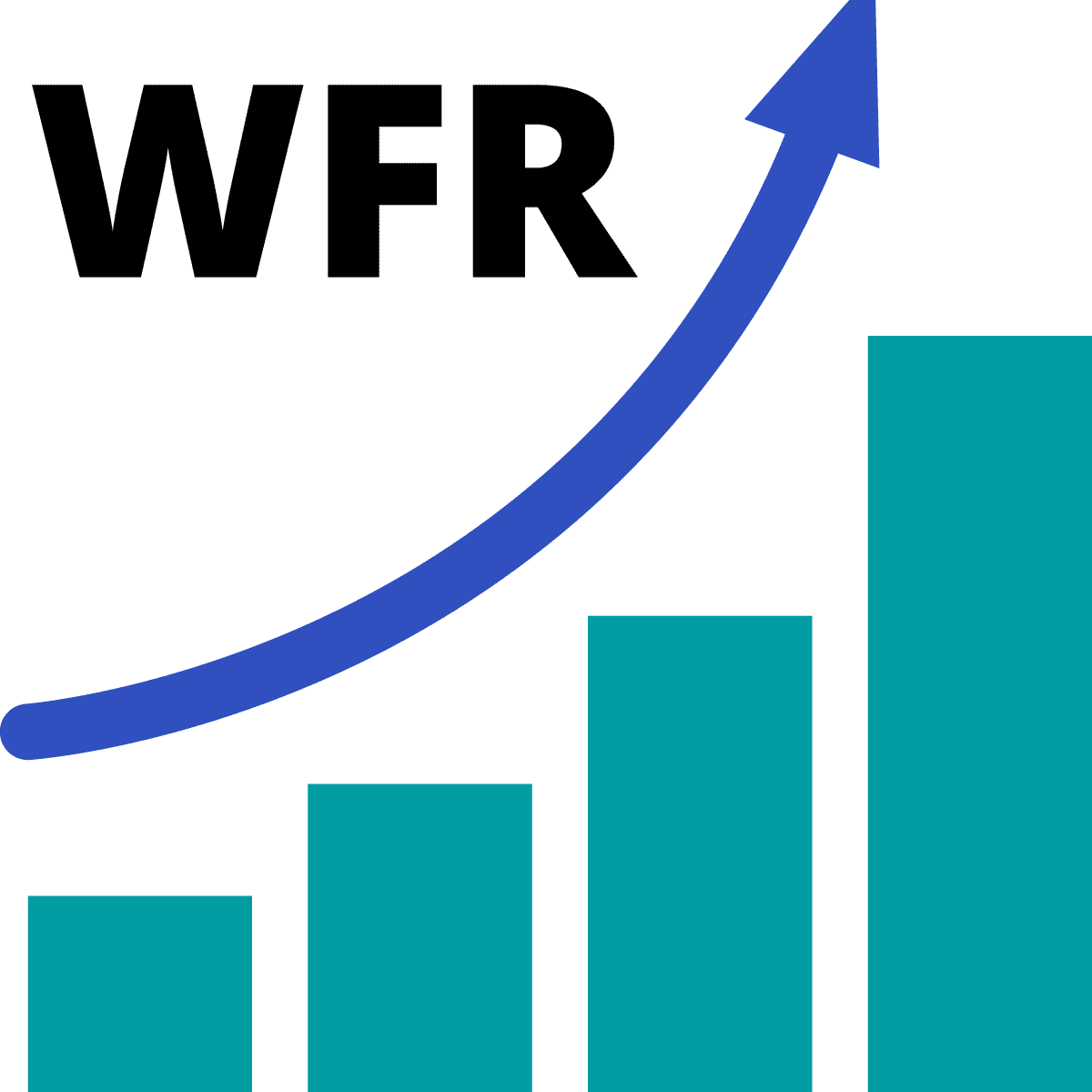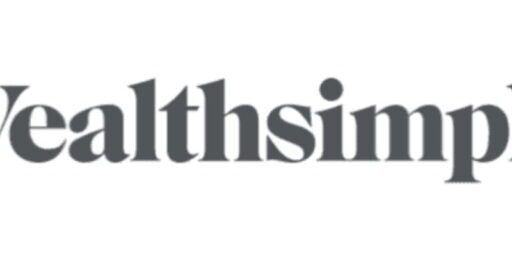Best Personal Finance Courses in Canada
I need to be clear right off the bat that I’m a bit bias when it comes to recommending the best financial literacy courses in Canada. Kyle Prevost has been a big part of Million Dollar Journey for many years now, so when he released the first ever DIY retirement planning course for Canadians, I was pretty excited. You can read my full thoughts on that course by checking out my Worry Free Retirement Course Review.
For the past several years, I’ve seen a solid increase in the number of reader comments that are asking for more details around retirement decumulation strategies, and real statistics on how to approach retirement spending plans. Apparently they’re sick of hearing, “It depends” when they ask these questions.
Kyle answers all of these questions with thoroughly-researched responses that explain concepts in bite-sized chunks. It’s my favourite personal finance course because it goes in-depth on topics like risk tolerance – without resorting to the usual, “Here’s the best investment, it’s a silver bullet” type of stuff you see in a lot of paid courses.
That said, it’s not the only financial literacy course out there designed for Canadians. See below for some other worthy contenders depending on what you’re looking to learn.

Are You Saving Enough for Retirement?
Take control of your financial future and stop blindly trusting "that it will all work out" or that your advisor really has your best interests in mind.
Learn about your CPP & OAS options, how to handle your TFSA and RRSP for maximum tax efficiency, and avoid the most common errors.
Created by MDJ's own Kyle Prevost, he's so confident that you'll find the course packed with value, that he's willing to pay your taxes PLUS give you your money back if you don't think it was worth it! Learn more by clicking the button below:
Best Free Financial Literacy Course: McGill University
McGill’s personal finance essential course was created a few years ago and has been refined a bit since then. It’s eight modules that cover topics from budgeting to behavioural finance. Overall, I found that it was about what you would expect for free from a Canadian university: A bit dry, well fact-checked, overall a solid introduction – if you can stay awake. The quizzes are a nice touch if you’re motivated by measured grades.
One nice aspect of this course is that you can be assured that it’s impartial, since the university profs that made it aren’t selling you anything.
Best Financial Literacy and Retirement Course for Canadians
Will I be OK when I retire?
I’ve got my nest egg… now what? How do I take money out while knowing I won’t go broke?!
As I mentioned above, Kyle Prevost’s 4 Steps to a Worry Free Retirement is my personal favourite financial literacy course for Canadians. It explores topics that don’t normally get the attention that they deserve, such as long-term care insurance, annuities, CPP, OAS, and how to draw down your RRSP/TFSA in a tax-efficient manner.

Are You Saving Enough for Retirement?
Take control of your financial future and stop blindly trusting "that it will all work out" or that your advisor really has your best interests in mind.
Learn about your CPP & OAS options, how to handle your TFSA and RRSP for maximum tax efficiency, and avoid the most common errors.
Created by MDJ's own Kyle Prevost, he's so confident that you'll find the course packed with value, that he's willing to pay your taxes PLUS give you your money back if you don't think it was worth it! Learn more by clicking the button below:
The course exists on an excellent platform called Thinkific. That website is super easy to use and allows you to learn from videos, graphs, asking questions, and several other methods. It works flawlessly if you’re on a laptop, tablet, or just doing some reading on your phone. Plus, it just looks a lot “cleaner” and nicer than some of the free options on this list.
Best Course for Getting of Debt: Credit Counseling Society
There’s not a lot of money in writing a course for people to better understand debt repayment and credit in Canada.
Canada’s Credit Counseling Society deserves a lot of praise for creating the free resource that they call, “The Truth About Credit.” It’s very user-friendly and interactive, so it’s likely to be more effective than simply reading a book. After taking the course you should understand the right order to pay down debt, fully get what a credit score is and why it’s so important, as well as the different types of borrowing Canadians will deal with.
The course is aimed at beginners to financial literacy, but includes some details a lot of folks might overlook.
Best Canadian Pure Investment Course: John Robertson, Ph.D
There are dozens of investment courses out there that will charge you thousands of dollars. Most promise get-rich-quick advice, and involve a lot of slick marketing around concepts like Bitcoin.
The Practical Index Investing Course for Canadians is the exact opposite. If you’ve read John’s book The Value of Simple, you’ve got a pretty good idea about what John’s style is: all substance – no marketing flash. He’s going to present the facts in a simple and straightforward manner, and he isn’t going to try some hard sell on you.
There’s no get-rich-quick silver bullets here. Just an evidence-based plan that gives you the best statistical chance to build wealth as a Canadian. The content is written by a Canadian, for a Canadian audience. It fully explains how to avoid crippling investment fees, and guides you step-by-step through the investment process.
Best Free Canadian Personal Finance Course for Taxes: Government of Canada
I’m not usually a big fan of most resources that the government creates. That said, their taxes course is pretty solid, and it’s completely free. You’ll know it’s a government document because it looks like it was made in about 1992.
But if you can get past the rookie-level design aspects, the course explains how to navigate your CRA My Account. It’s fair to say that if you just have a simple “T1 tax return” where your source(s) of income are pretty straightforward, then you could tackle doing your own tax return after taking this course.
The course doesn’t go into detail if you have a non-registered investment account, or have a small business of any kind (whether is a sole proprietorship or a corporation).
Best International Financial Literacy Course: Khan Academy
I’ve been a massive fan of Khan Academy ever since I had to help my kids with their science homework. The digital chalkboard-style of presenting appeals to me personally and seems to hold my attention.
There is no better free resource when it comes to illustrating financial literacy concepts such as the power of compound interest. Like all Khan Academy resources, it is also a complete free course.
The only downside is that as you get into topics such as retirement savings and employment benefits, the information becomes more US-centric. Lots of good stuff if you’re a US expat in Canada, and plenty of excellent tutorials for visual learners just coming to the world of personal finance.
How Do I Know if a Course is Any Good?
Once you’ve decided that you want to take control of your finances and educate yourself, one of the most difficult considerations is how to objectively know if a source of information is any good.
The truth is that everyone is going to recommend themselves. We’re no different by the way – as you can tell from how I started this article.
If you ask a financial advisor at a major bank or one of the big investment companies where to go, they’ll tell you that they work for the best wealth management company in Canada, and that they have all the answers to your questions. They won’t tell you that pretty much anyone in Canada can call themselves a financial advisor, as there is no legal meaning to that title. They also won’t disclose that they get paid based on kickback commissions from the
If you ask a Certified Financial Planner about where to go for information, they’ll tell you only designated CFPs can give you the right information. Yet every week we get comments and emails at MDJ about the awful advice that many CFPs give to their clients.
I honestly put very little trust in accreditation. All those letters behind the name tell you, is that they can pass a test. It doesn’t tell you anything about someone’s ethics, and to be honest, I don’t even think the tests they have to pass are all that useful when it comes to financial planning for the average Canadians.
If you’re reading this website, I have to assume you don’t think letters behind the name don’t mean a whole lot, as I don’t have any. All I have to back up my authority is that I’ve been reading and writing about Canadian personal finance for two decades now!
Instead, I recommend Googling for course reviews and seeing if the course creator knows what they’re talking about – and if they’re endorsed by unaffiliated third parties. Using Kyle’s DIY retirement planning course as an example – here’s how I would know it’s high quality (even if he didn’t give me a free membership in order to review it).
1) Kyle presents his research from dozens of books and hundreds of newspaper columns and journal articles. The research speaks for itself and isn’t just anecdotes or verbatim quotes from their company’s website.
2) When I Google the course title, it pops up that Jon Chevreau, Ellen Roseman, and Rob Carrick have all reviewed the course. Those are three of the longest-tenured personal finance writers in Canada, and they don’t take sponsorships or anything like that. So I know that they are impartial, and upon skimming, I can tell that they are all very impressed with the course.
3) Kyle has a wide media presence online. He has written for many publications including Moneysense, Canadian MoneySaver, the CBC, Globe and Mail, Financial Post, Zolo, Rates.ca, Retire Happy, and has hosted many different podcasts. If all of those 3rd-party publications trust him enough to bring him on as an expert commentator, then I have a pretty good idea that his authority is genuine – and isn’t just slick marketing.
4) The course offers a full 100% money-back guarantee. I’d steer clear of any course that didn’t offer this as it shows they don’t have faith in the product. If they truly stand behind their product, they should have no problem being transparent about a money-back guarantee.
Another course creator that would pass this test would be Kornel Szrejber, who also hosts the Build Wealth Canada Podcast.
Once you begin a course, I’d quickly skim to see where the creator is getting their facts from. Are they from appropriate sources, or have they simply determined that they’re an investing expert thanks to cryptocurrency YouTube videos? Don’t be afraid to ask for a refund if it’s pretty apparent that these folks are just making stuff up.











WFR course has very good value. We will / can refer back to an updated course material whenever we wish. DIY investor must.
On another topic, FT are you not KSz?
FT is FT ;)
I’ve learned a lot through Kyle’s course. I’m about 70% through it and have learned enough to feel confident putting together a specific plan for retirement for myself and my husband. Kyle has answered my questions as they’ve come up and I’ve learned from that as well as the questions from the others in the course. I’ve followed this blog and the Canadian Financial summit for several years so feel confident in the ethics and background of Mr. Prevost. That is important.
I know so many people my age who want to dump their retirement planning in someone else’s lap (and pay a hefty price) because they are intimidated. I get it. It is a LOT! But, you don’t have to do that if you take the time to learn. This is the next 30 years or so of my life so its important enough to take that time. I think Worry Free Retirement is worth every penny!!